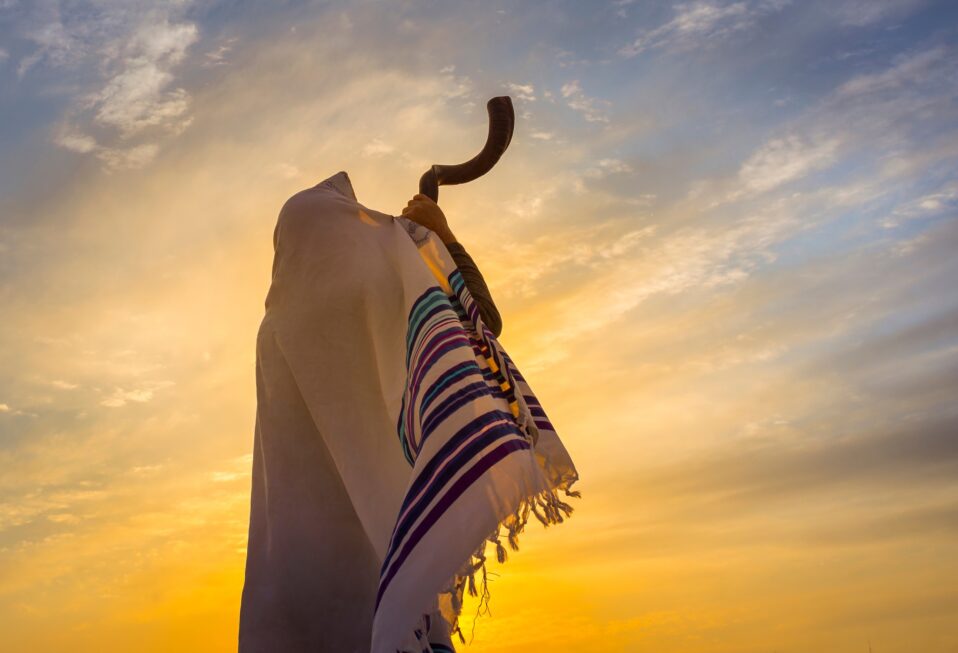“In the seventh month, on the first day of the month, you shall have a sabbath-rest, a memorial of blowing of trumpets, a holy convocation. You shall do no customary work on it; and you shall offer an offering made by fire to the Lord … Also the tenth day of this seventh month shall be the Day of Atonement. It shall be a holy convocation for you; you shall afflict your souls, and offer an offering made by fire to the LORD” (Leviticus 23:24-27 NKJV).
Rosh Hashanah (“Head of the Year”) is the first of the High Holy Days, which happens this time every year. It is observed as the start of the civil year on the Jewish calendar (in comparison to the religious year, which starts with Pesach or Passover).
Rosh Hashanah is the first of the fall feasts. It begins the “Ten Days of Awe” that lead up to Yom Kippur (“Day of Atonement”). According to Leviticus 23:24-25, this celebration was signified as a time of rest, an offering that was made by fire, and the blowing of trumpets.
Modern Rosh Hashanah is traced back to the biblical “Feast of Trumpets,” which is the blowing of the shofar (“ram’s horn”) on the first day of the seventh month (Tishri) of the religious calendar year (Leviticus 23:24; Numbers 29:1).
The Feast of Trumpets occurs on the first day of the Hebrew month, Tishri. It would occur at the new moon. Only the slightest crescent would be visible. However, clouds could sometimes obscure the moon, and witnesses would be required.
Watchfulness was a critical ingredient of this feast. The rabbis later would include a second day to this feast to ensure that they did not miss it.
This need for watchfulness and preparedness in connection with the Feast of Trumpets is spoken of throughout the New Testament in relation to the Lord’s coming:
“Watch therefore, for you do not know what hour your Lord is coming” (Matthew 24:42 NKJV).
“Therefore, let us not sleep, as others do, but let us watch and be sober” (1 Thessalonians 5:6 NKJV).
“Looking for the blessed hope and glorious appearing of our great God and Savior Jesus Christ” (Titus 2:13 NKJV).
“So, Christ was offered once to bear the sins of many. To those who eagerly wait for Him He will appear a second time, apart from sin, for salvation” (Hebrews 9:28 NKJV).
You may ask, what does Rosh Hashanah have to do with me?
The High Holy Days remind us not only to continue to repent and return to God but to also remain watchful, always looking for that blessed hope, the glorious appearing of our Lord and Savior, Jesus Christ.
PRAYER
Father, we eagerly look to You as the sole source of our redemption, and we remain watchful looking for Your magnificent return. Amen.




Post a comment